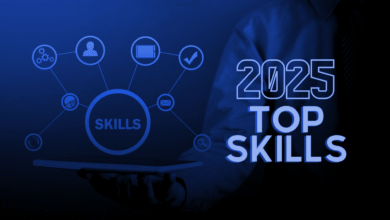AI in Pakistani Healthcare: Current Applications and Future Potential
AI in Pakistani healthcare is transforming medicine with smarter diagnostics, telemedicine. Explore current uses & future potential of AI in Pakistan.

AI in Pakistani Healthcare is rapidly transforming the medical landscape, offering innovative solutions to long-standing challenges. From diagnostic tools to predictive analytics, AI is enhancing efficiency, accuracy, and accessibility in healthcare delivery across Pakistan. Despite limited resources and infrastructure, the country is witnessing promising advancements in AI-driven healthcare technologies, with both public and private sectors exploring its potential. This is explores the current applications of AI in Pakistani Healthcare system, the challenges hindering its widespread adoption, and the future possibilities that could revolutionize patient care and medical research.
As AI continues to evolve, its integration into AI in Pakistani Healthcare sector presents a unique opportunity to bridge gaps in medical services, particularly in rural and underserved areas. By leveraging machine learning, natural language processing, and big data analytics, healthcare providers can improve disease detection, streamline hospital operations, and personalize treatment plans. However, ethical concerns, data privacy issues, and the need for skilled professionals remain significant hurdles. Looking ahead, strategic investments, policy reforms, and public-private partnerships will be crucial in unlocking AI’s full potential to create a more efficient, equitable, and advanced healthcare system in Pakistan.
AI in Pakistani Healthcare
Medical Imaging and Diagnostics
One of the most impactful applications of AI in Pakistani Healthcare is in medical imaging and diagnostics. AI-powered tools, such as computer vision algorithms, are being used to analyze X-rays, MRIs, and CT scans with remarkable precision. Hospitals in major cities like Karachi, Lahore, and Islamabad have started adopting AI-assisted diagnostic systems to detect diseases such as tuberculosis, lung cancer, and brain tumors at early stages. For instance, AI-based radiology platforms help doctors identify abnormalities faster, reducing human error and improving patient outcomes.
Telemedicine and Remote Consultations
With limited access to AI in Pakistani Healthcare facilities in rural areas, telemedicine has become a vital solution, and AI is enhancing its effectiveness. AI-driven chatbots and virtual assistants provide preliminary diagnoses, schedule appointments, and offer medical advice, reducing the burden on healthcare professionals. During the COVID-19 pandemic, several Pakistani startups launched AI-powered telemedicine platforms, enabling patients in remote regions to consult doctors via smartphones. These platforms also use AI to analyze symptoms and prioritize emergency cases, ensuring timely interventions.
Predictive Analytics for Disease Outbreaks
AI’s predictive capabilities are being utilized to track and manage disease outbreaks in Pakistan. By analyzing historical health data, weather patterns, and population movements, AI models can forecast the spread of infectious diseases like dengue, malaria, and cholera. The Punjab Health Department has experimented with AI-based surveillance systems to predict dengue hotspots, allowing authorities to allocate resources more efficiently. Such innovations are crucial for proactive public health management, especially in densely populated urban areas.
Drug Discovery and Personalized Medicine
AI is accelerating drug discovery and personalized treatment plans by analyzing vast datasets of genetic information and clinical trials. Pakistani researchers are collaborating with international institutions to develop AI models that identify potential drug candidates for diseases prevalent in the region, such as hepatitis and diabetes. Additionally, AI-driven genomic analysis enables personalized medicine, where treatments are tailored to an individual’s genetic makeup, improving efficacy and reducing side effects.
Hospital Management and Automation
AI is streamlining administrative and operational processes in Pakistani hospitals. Intelligent systems manage patient records, optimize staff schedules, and predict admission rates, enhancing overall efficiency. AI-powered robotic process automation (RPA) handles billing, inventory management, and appointment scheduling, reducing paperwork and human errors. Some private hospitals in Karachi have implemented AI-based solutions to minimize waiting times and improve patient satisfaction.
Challenges in Implementing AI in Pakistani Healthcare
Limited Infrastructure and Funding
Many healthcare facilities in Pakistan lack the necessary technological infrastructure to support AI applications. High costs associated with AI implementation, including hardware, software, and training, pose significant barriers, particularly for public hospitals with constrained budgets.
Data Privacy and Security Concerns
AI systems rely on vast amounts of patient data, raising concerns about privacy breaches and misuse. Pakistan currently lacks comprehensive data protection laws, making it difficult to ensure secure and ethical AI deployment in healthcare.
Shortage of Skilled Professionals
There is a scarcity of AI experts, data scientists, and healthcare professionals trained in AI applications. Without proper education and training programs, the healthcare sector cannot fully harness AI’s benefits.
Resistance to Technological Adoption
Many medical practitioners remain skeptical about AI, preferring traditional diagnostic methods. Overcoming this resistance requires awareness campaigns and evidence-based demonstrations of AI’s effectiveness.
Future Potential of AI in Pakistani Healthcare
AI-Powered Rural Healthcare Solutions
AI can bridge the urban-rural healthcare divide by enabling mobile clinics with AI diagnostic tools and telemedicine services. Portable AI devices could allow community health workers to conduct screenings for diseases like diabetes and hypertension in remote villages.
Enhanced AI Research and Local Innovations
Pakistani universities and tech startups are increasingly focusing on AI research. Government and private sector support can foster homegrown AI solutions tailored to local healthcare needs.
Integration with National Health Policies
Policymakers must incorporate AI into national health strategies, ensuring standardized regulations, funding, and infrastructure development. Public-private partnerships can accelerate AI adoption in healthcare.
AI in Mental Health and Chronic Disease Management
AI-driven mental health apps and wearable devices can monitor chronic conditions like heart disease and depression, providing real-time insights to patients and doctors.
Read More: Tech Unboxing: Latest Gadgets Launched in Pakistan This Month
Conclusion
AI in Pakistani Healthcare represents a groundbreaking shift toward more efficient, accessible, and precise medical services. From enhancing diagnostic accuracy with AI-powered imaging to enabling remote consultations through telemedicine, AI is already making significant strides in addressing Pakistan’s healthcare challenges. However, for AI to reach its full potential, systemic barriers such as inadequate infrastructure, data privacy concerns, and a shortage of skilled professionals must be overcome. Collaborative efforts between the government, private sector, and international partners will be essential in creating a sustainable ecosystem where AI-driven innovations can thrive. By investing in research, policy reforms, and digital literacy, Pakistan can harness AI to bridge healthcare disparities and improve patient outcomes nationwide.
Looking ahead, the future of AI in Pakistani Healthcare is filled with promise. As technology advances, AI could revolutionize preventive care, personalized medicine, and large-scale disease management, particularly in rural and underserved regions. To fully capitalize on these opportunities, stakeholders must prioritize ethical AI deployment, robust cybersecurity measures, and continuous professional training. If implemented strategically,the has the potential to transform AI in Pakistani Healthcare system into a more resilient, data-driven, and patient-centric model ultimately ensuring better health for all citizens while positioning the country as a leader in medical innovation.
FAQs
How is AI currently being used in Pakistani healthcare?
AI is used in medical imaging, telemedicine, disease prediction, drug discovery, and hospital automation to improve diagnostics and efficiency.
What are the major challenges for adoption to AI in Pakistani Healthcare?
Key challenges include limited infrastructure, data privacy concerns, lack of funding, and a shortage of skilled professionals.
Can AI improve healthcare access in rural Pakistan?
Yes, AI-powered telemedicine and portable diagnostic tools can extend healthcare services to underserved rural areas.
What role can the government play in promoting AI in Pakistani Healthcare?
The government can introduce supportive policies, increase funding, and encourage public-private partnerships to accelerate AI integration.
Is AI replacing doctors in Pakistan?
No, AI assists doctors by improving accuracy and efficiency but does not replace human medical professionals.











